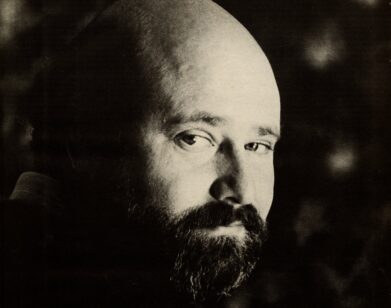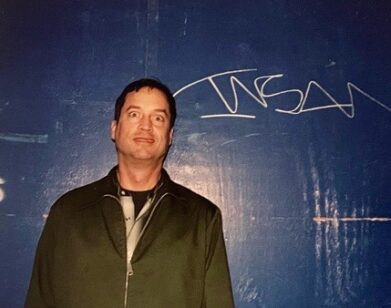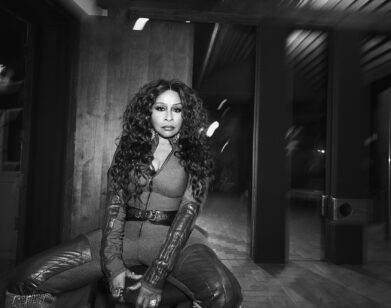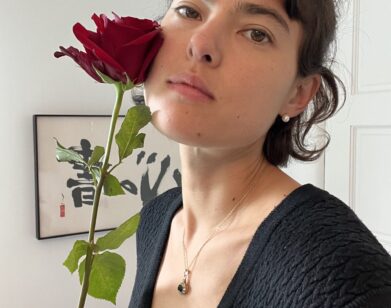life lessons
Life Lessons from Joni Mitchell
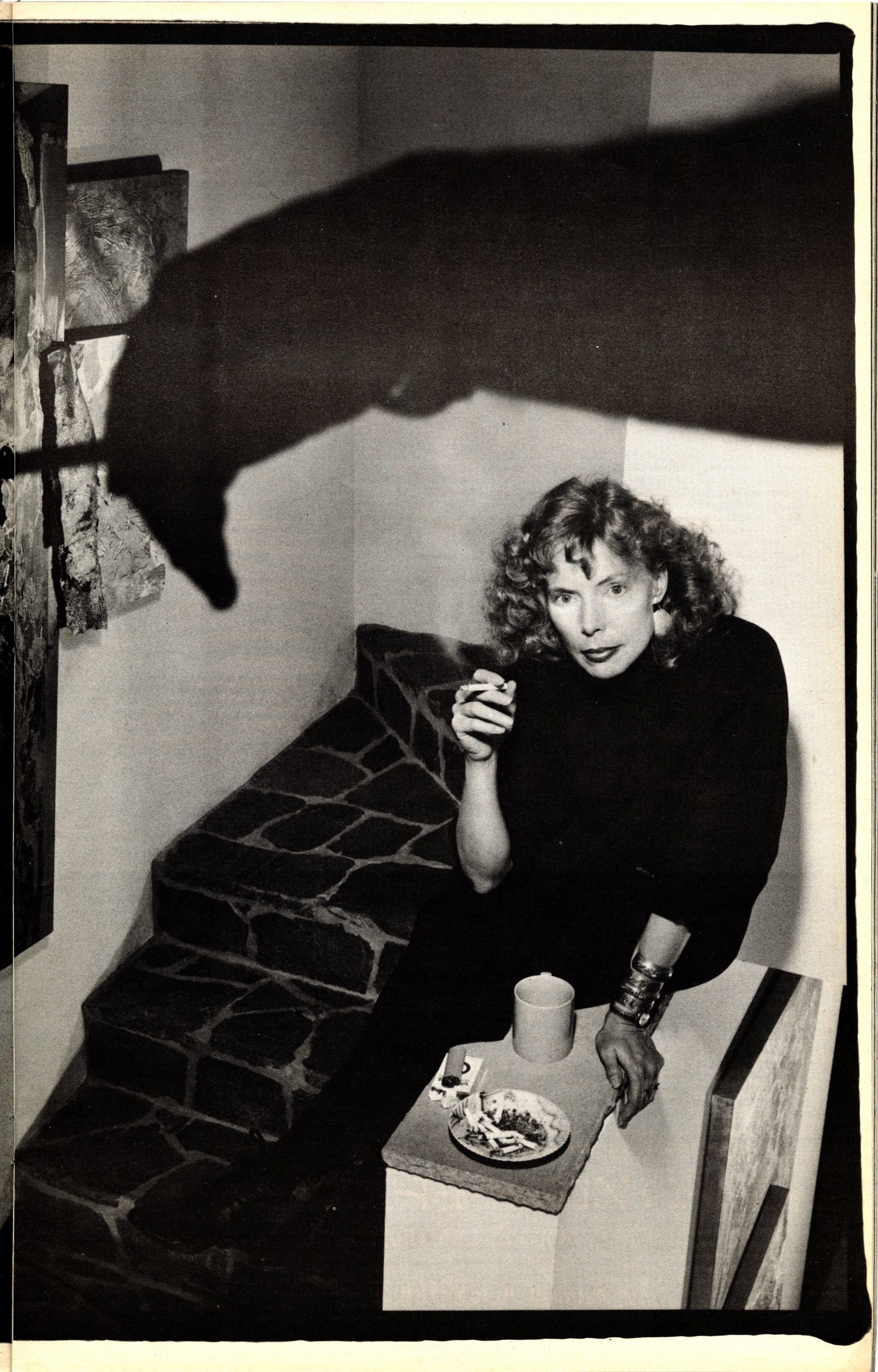
Joni Mitchell photographed by Moshe Brakha for Interview, August 1985.
Welcome to Life Lessons. This week, we revisit some admittedly out of context highlights from two interviews with singer-songwriter Joni Mitchell, the original Lady of the Canyon: first in August 1985, then in April 1991. Sit down, pull out your acoustic guitar—you just might learn a thing or two.
———
“You need a good omen when you’re trespassing on someone’s property.”
———
“The bulk of people are manipulated by the industry, because they’re so uncertain of their own taste. Many of them are sheep and have to be told what to like. That keeps the mercantile coffers full.”
———
“People had been saying to me for a long time that I reminded them of a young Georgia O’Keeffe. And I didn’t know anything about her, because at the time there was no book available on her work and I hadn’t seen any of her paintings… So the following year a friend of mine and I decided to visit her. I prepared a little package of presents for her: the Hejira album and a Christmas book of my drawings. Late in the afternoon we pulled up in front of Georgia’s house. There was no doorbell, no real way to announce that you were there. So I went through this break in the fence, and there was a path that led around by her bedroom window… and there she stood in the kitchen, with her black and white winter uniform on, and the ‘O.K.’ abstract pin. I saw her white hair and her black eyebrows. And as I came around the corner, she threw her head up into the air—like, in disdain—and disappeared. And I thought, ‘Oh god, I know exactly how she feels.’ But I kept going forward. The maid came to the door and looked at me as if I weren’t too out of line. ‘Would you like to give them to her yourself?’ she asked. And I said, ‘No, no, it’s okay—I’ll give them to you, and you give them to her,’ and we split.
So anyway, we returned home and there was a bowl that my mail congregates in—sometimes I don’t open my mail for long periods of time. Maybe it had even stacked up for a year in this bowl. And lying right on top was an ARTnews magazine, and on the cover was Georgia. I turned to the article on her and there was a page where they had blown up the print and what it said was: ‘So I asked Miss O’Keeffe if she could come back in another life, what would she come back as? And, without skipping a beat, Miss O’Keeffe replied, ‘I would come back a blonde soprano who could sing high, clear notes without fear.’ Well, I read that, and I kind of trembled. I thought, well, that explains why I went, and that’s enough for me. Then a couple of days later, in came a postcard. It was Crows Over Lake George—the black crow against the blue sky. I flipped it over and it said, ‘Have we offended you in some way?—Juan Hamilton.’ So I started digging through my mail, and I found all these postcards of Georgia’s with all of these invitations to come and visit.”
———
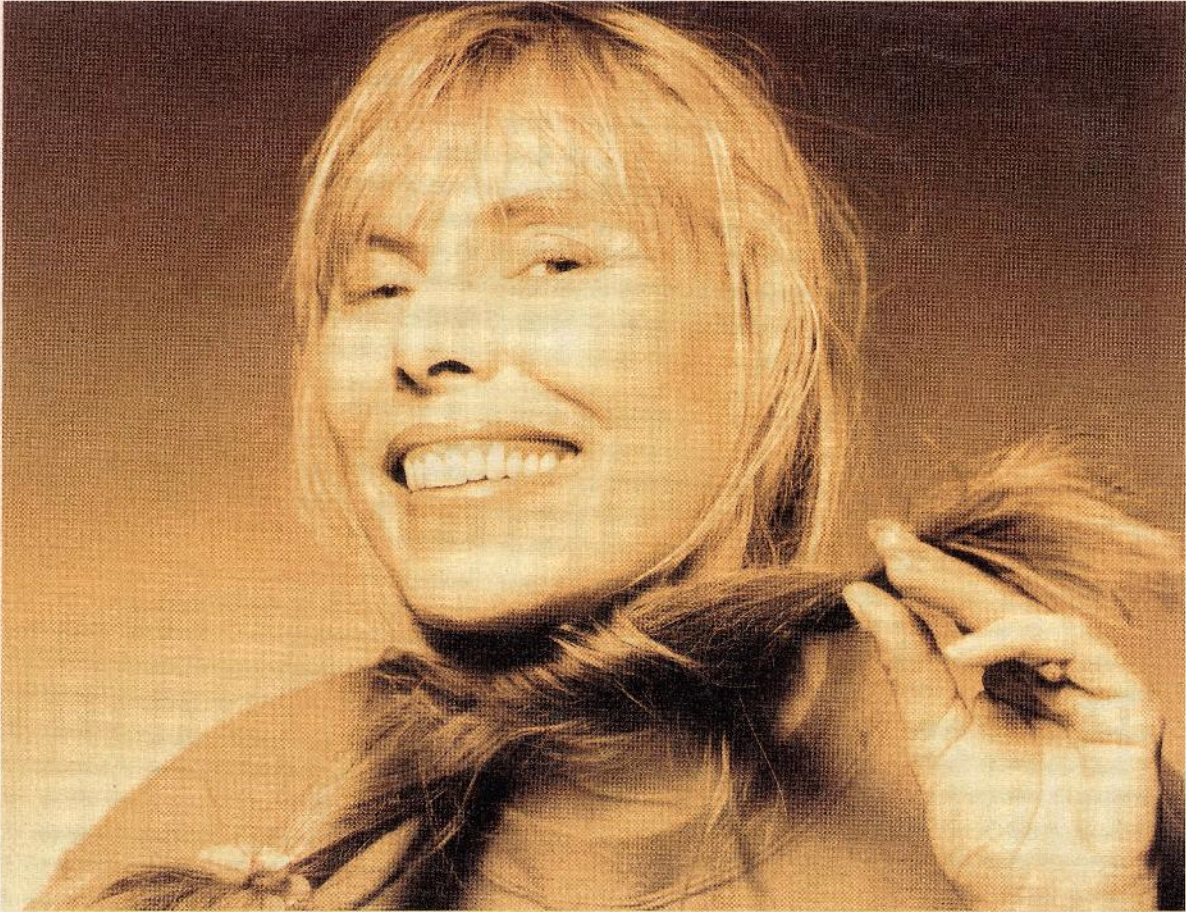
Joni Mitchell photographed by Matthew Rolston for Interview, April 1991.
———
“We took a long walk into the country and she was remarkably spry. A woman in her nineties, man, and she was clipping along this road. And I was chain-smoking all the way along it. And suddenly she said to me, ‘You shouldn’t smoke!’ And Juan said, ‘Georgia, that’s unlike you to meddle in other people’s affairs.’ And she stopped and leaned on her cane, with one hand on her hip, and she said, ‘Well, she should live.’ And we continued on our walk.”
———
“People keep writing songs about how rock ‘n’ roll will never die. Well, rock ‘n’ roll died a long time ago. It never even made it into the ’60s. The roll went out of it. What died was the push beat, the remnant from swing and boogle-woogle. And when it died what was left was just rock—a more vertical beat. A certain joy went out of rock ‘n’ roll, and what was left was militancy—which I guess makes sense because of the times.”
———
“I’ve always been better at the anatomy of the crime—what went wrong.”
———
“The last album, I forget how many times it used the word ‘love.’ I never counted them, but I saw one criticism of the album that the word love just made the critic sick. It was a discredit—’Yecch, she used the word ‘love,’ yecch.’ Because that sentiment isn’t particularly popular at this time. It isn’t dazzling enough—too tender a notion for the times.”
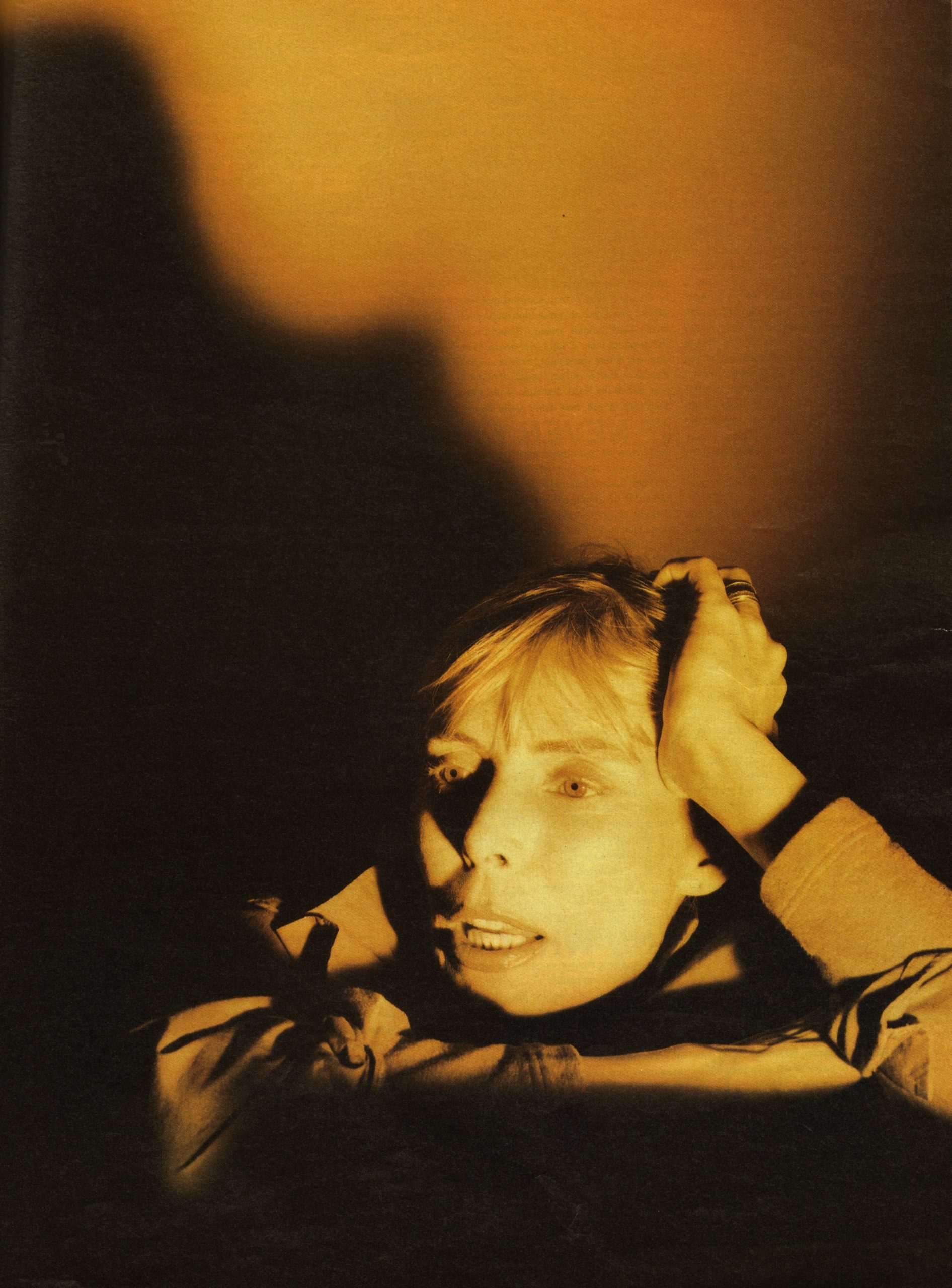
Joni Mitchell photographed by Matthew Rolston for Interview, April 1991.
———
“In a way, everything you appreciate goes into you and comes out sooner or later. It creates the mulch for later work.
———
“I’m completely intrigued by moving pictures. I’ll watch anything. If it moves, I’ll watch it. I get hypnotized by it like fire, image to image. I’m not that crazy about the dominance, the sadism [of MTV]. Sometimes it kind of makes me heartsick—all dazzle, no lift.”
———
“I would really like to do a video with Bergman… I don’t take instruction very well. I’ve had the luxury of making my own decisions, you know? But there are some people whose judgment, I think, would be… I would gamble on their absolute simpatico enough to turn it over.”
———
“Like Georgia [O’Keeffe] said when I went to visit her, ‘Oh, I would’ve liked to make music, but you can’t do both. And I said, ‘Oh, yes you can.’ She leaned forward on her elbows and she said, ‘Really?’ And I could just see her going out to get violin lessons or taking up the accordion.”
———
“A lot of times my chords depict complex emotions—Joni’s weird chords. Prince saw me play when he was very young in Minneapolis, and I remember seeing him in the front row, because his eyes are so unusual. You know, they’re like, Egyptian. I played a lot to him because his eyes were so unusual. Every time the light would spill down there, and he’d kind of hide inside his coat and look up at me.”
———
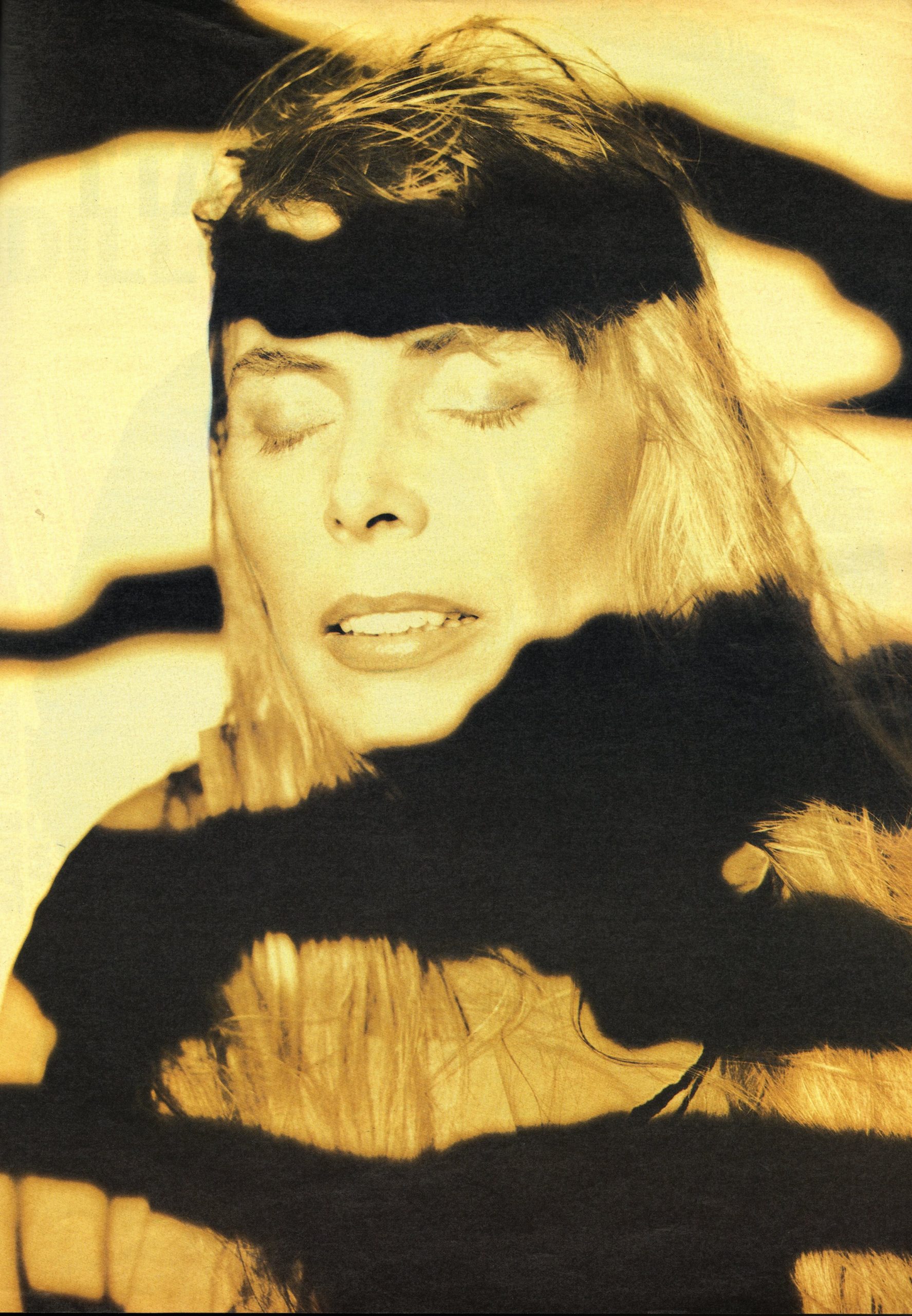
Joni Mitchell photographed by Matthew Rolston for Interview, April 1991.
———
“Suppose I want to write musicals. If I went along doing only nice intimate little things, how would I ever learn how to write for a full stage?”
———
“Kids come up to me at restaurants—you know, kids. I don’t feel like an adult yet, so I don’t know why I call them ‘kids.’ I guess it’s because I think I should.”
———
“[Chögyam Trungpa] was the bad boy of Zen. I consider him one of my great teachers, even though I saw him only three times. He told me to quit analyzing. I told him I couldn’t—I’m an artist, you know. Then he induced in me a temporary state where the concept of ‘I’ was absent, which lasted for three days. From then on, it was my decision whether to make that my life. But you can’t function from there as an artist.”
———
“My voice is middle-aged now. Perhaps it’s like an old cello. I like it better now as a dramatic vehicle. A lot of my songs—if I were a director, I wouldn’t have cast me in those songs. I wrote some roles that I hadn’t grown into yet.”
———
“For years—almost like a schoolmarm or something—the ‘apples’ I’ve received on tour have been people’s creative efforts. You know, when you get the things coming back to your dressing room, among the flowers are people’s poetry, people’s drawings. Usually the note contains something to the effect of, ‘If you can do it, I can do it, too.’ Which is great, you know? I mean, I like the idea that if you make something, it makes other people make something, too.”

